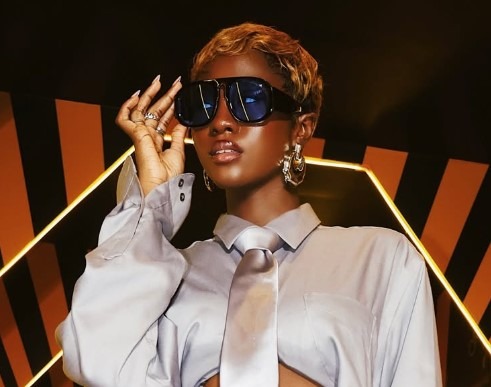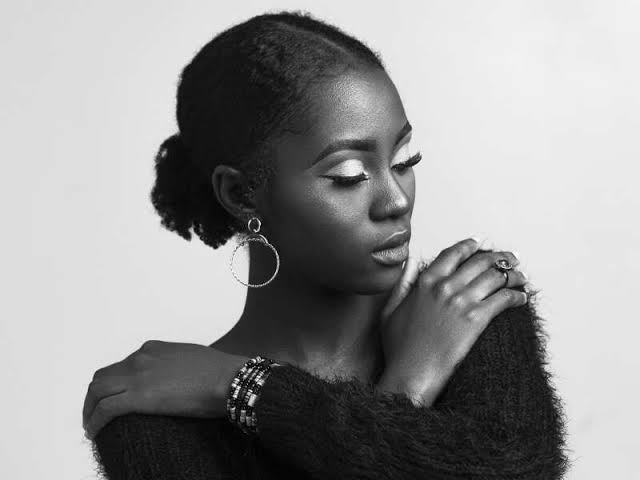The music industry has long been where talent meets opportunity, yet it remains a landscape marked by gender disparities.
While women have made significant strides in various facets of the music industry, the assertion that they work ten times harder than their male counterparts is not merely anecdotal; it is rooted in a complex interplay of societal expectations, systemic barriers, and the relentless pursuit of equality.
Ghanaian singer and songwriter, Cina Soul, has stated that women in the music industry work “ten times harder” than their male colleagues.
The “Ojorley” hitmaker emphasized the unequal playing field women navigate in the entertainment space.
“I feel like we work ten times harder than the boys. Anyone can argue, but personally, that’s how I feel. We have to work harder because the attention is always on us. The little things we do can be blown out of proportion. We work very hard; we just need more support.”
Cina Soul
The music industry has been dominated by male figures, from producers and executives to artists and instrumentalists.
Females have often been relegated to supporting roles or pigeonholed into specific genres. Icons like Aretha Franklin and Janis Joplin broke through these barriers, but their journeys were fraught with obstacles.
The music industry’s patriarchal structure has perpetuated stereotypes that often undermine women’s contributions and capabilities.
Despite the progress made, statistics reveal a stark reality. According to a 2020 report by the Annenberg Inclusion Initiative, women comprised only 21.6% of popular music artists, and their representation in production roles was even lower.

This underrepresentation translates into a heightened sense of urgency for women to prove themselves, often leading them to work harder than their male colleagues.
Women face systemic barriers that limit their access to opportunities. This includes a lack of mentorship, networking challenges, and biases in hiring practices.
They often have to navigate a male-dominated environment where their contributions may be overlooked or undervalued. Women in music frequently contend with stereotypes that dictate how they should look, behave, and perform.
These societal expectations lead to additional pressures, compelling women to overachieve to gain the same recognition afforded to their male counterparts.
The music industry is notorious for its demanding schedules, which is especially challenging for women who also bear the brunt of familial responsibilities.
This dual burden often requires women to demonstrate exceptional time management and dedication, leading to the perception that they must work harder to succeed.
Female artists often face sexualization and objectification, which can detract from their artistic merits. This additional layer of scrutiny can compel women to work even harder to be taken seriously as musicians and not just as entertainers.
Resilience of Women in the Music Industry

Despite these challenges, women in the music industry have shown remarkable resilience and creativity.
Artists like Taylor Swift, Beyoncé, and Billie Eilish have not only achieved commercial success but have also used their platforms to advocate for gender equality and challenge industry norms. Their journeys illustrate the power of perseverance and the importance of visibility.
Women are increasingly taking on leadership roles in the music industry. Figures like Sylvia Rhone, the first woman to head a major record label, and Clive Davis, who has championed countless female artists, have paved the way for future generations.
Additionally, initiatives like the Women in Music organization and the #MeToo movement have raised awareness about the challenges women face and have fostered a supportive community.
To create a more equitable music industry, it is essential to address the systemic issues that perpetuate gender disparities.

Establishing mentorship programs that connect emerging female artists and professionals with experienced mentors can help bridge the gap and provide valuable guidance.
Continued efforts to raise awareness about the challenges faced by women in the industry are crucial. This includes promoting discussions around gender equity and amplifying the voices of women artists.
The assertion that women in the music industry work ten times harder than men reflects a broader narrative of resilience in the face of adversity.
As the industry evolves, individuals must continue to advocate for equality, ensuring that future generations of women in music thrive without the burden of disproportionate expectations.
READ ALSO: Ahiagbah Warns Against Threat To Free Speech





















